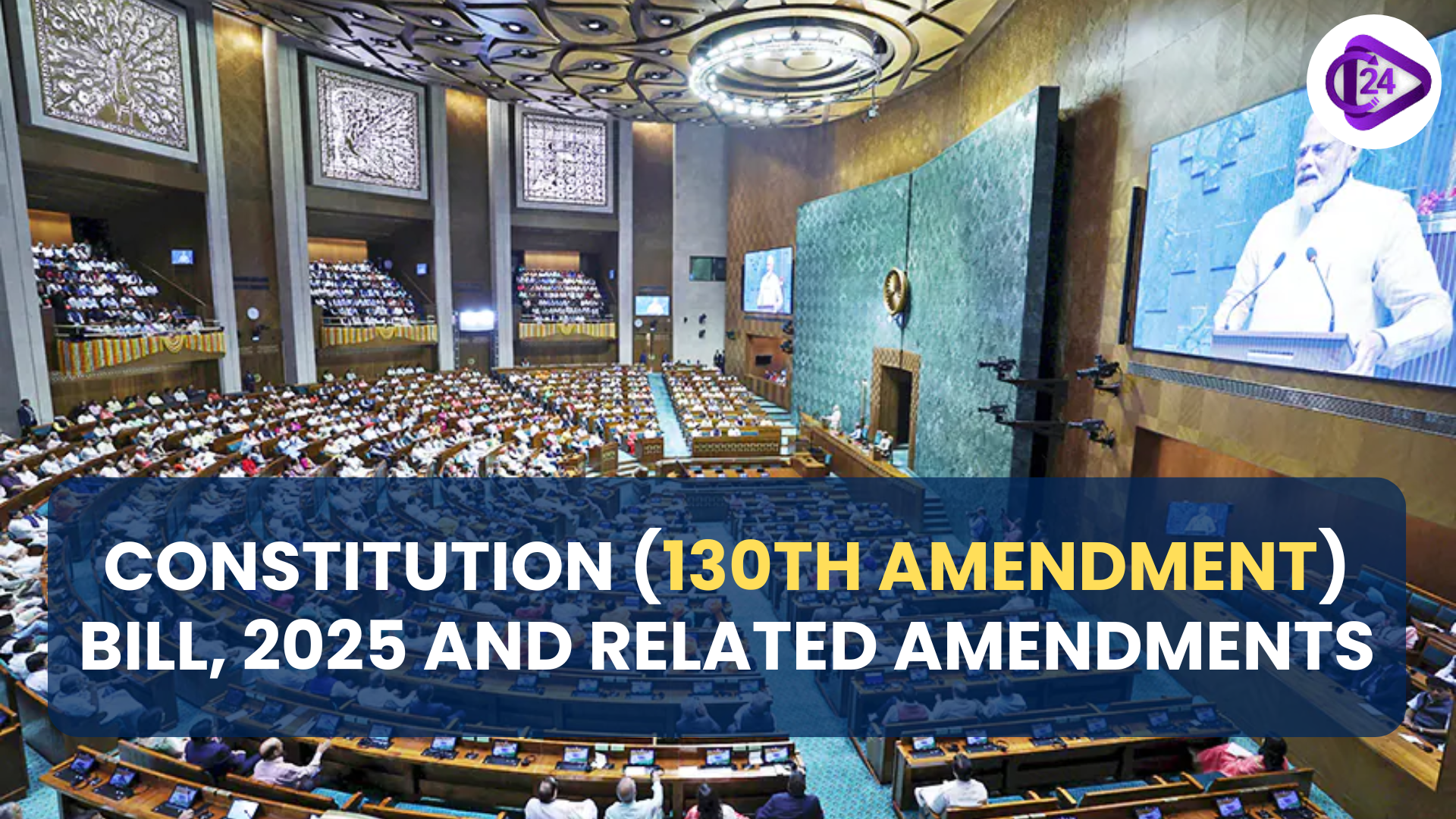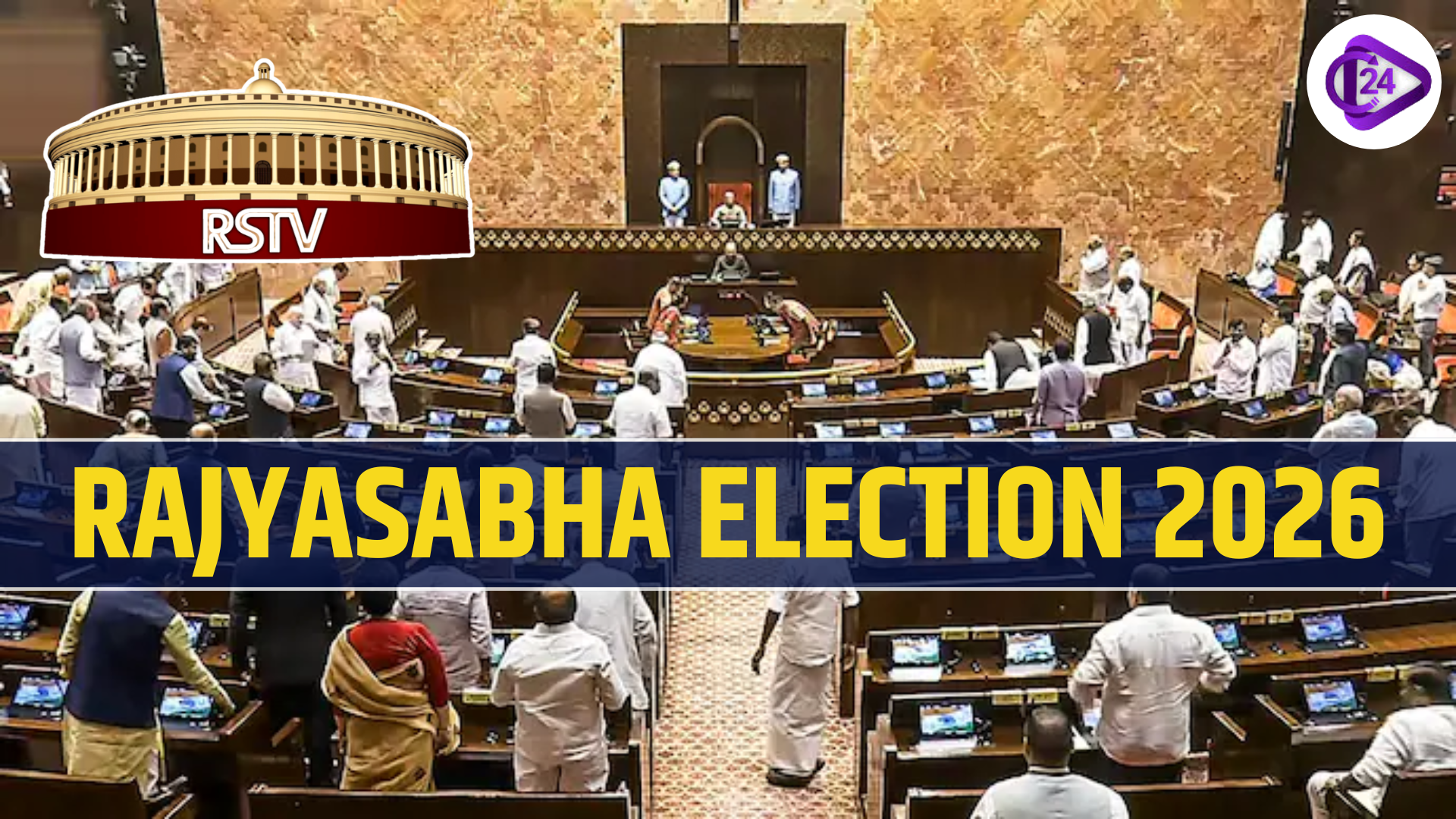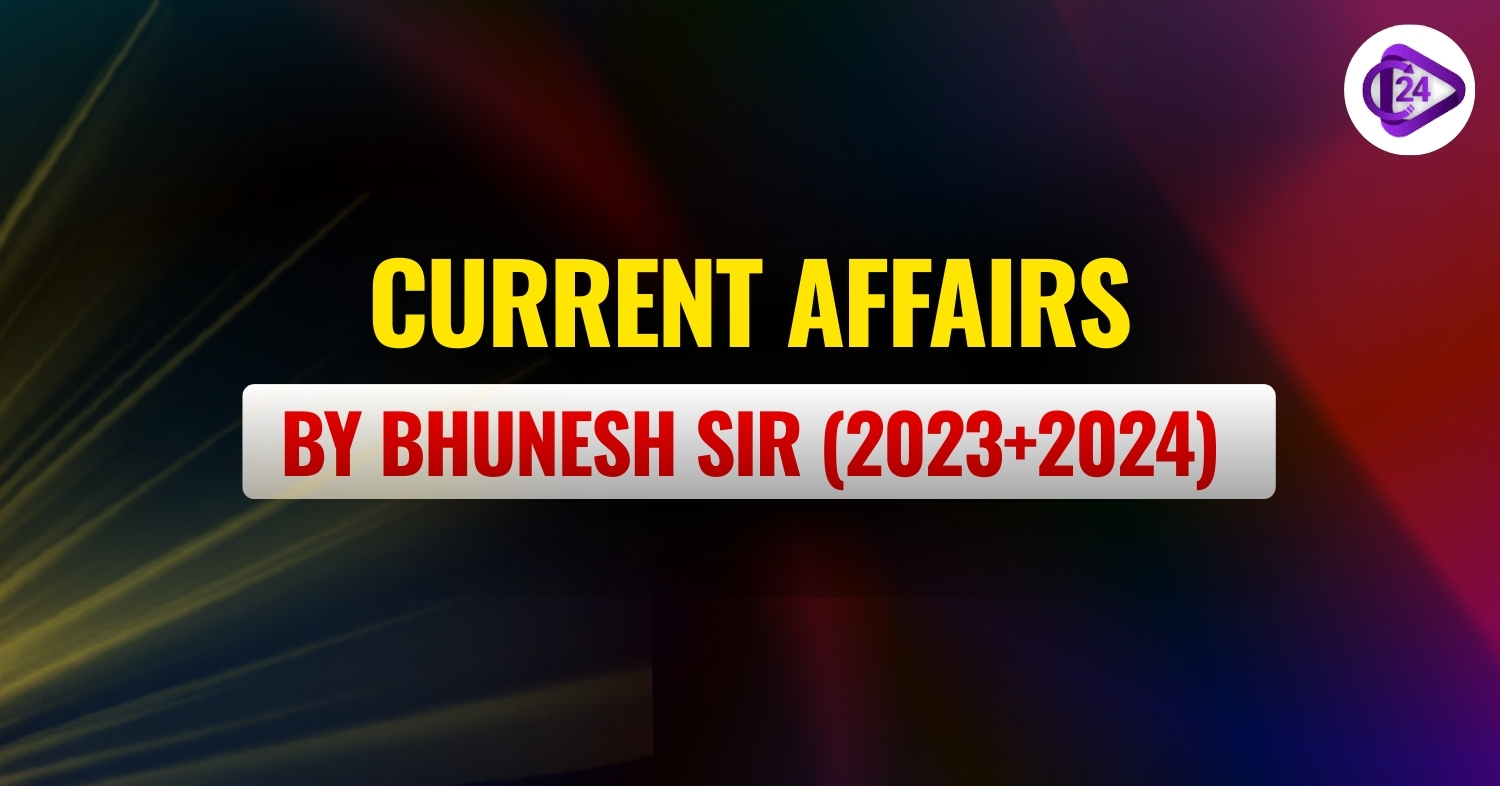Daily Quizzes
Mock Tests
No tests attempted yet.
Select Category

Amit Shah, the Home and Cooperation Minister presented the House with three important bills in the Lok Sabha, the (130th Amendment) Bill, 2025, the Union Territories (Amendment) Bill, 2025, and the Jammu and Kashmir Reorganisation (Amendment) Bill, 2025. The main focus of the constitutional amendment is to preclude the case where those who hold constitutional offices (Prime Minister, Chief Ministers, and Ministers) would continue to govern the country even when they are in jail. The action is meant to rescue morality in politics and stop the tendency of leaders on remand to remain in power. The bill gives an accused leader a 30-day window to apply to bail failure to which he will be disqualified. The controversy of this reform as an attempt to fight corruption has been highly opposed as we see arguments on constitutional morality and accountability in politics.
Context
Three most important bills were introduced in the Lok Sabha by the Union Home and Cooperation Minister Amit Shah (Aug 2025):
-
Constitution (130th Amendment) Bill, 2025
-
Union Territories (Amendment) Bill, 2025
-
Jammu & Kashmir Reorganisation (Amendment) Bill, 2025
The Constitution Amendment Bill is primarily aimed at ensuring that individuals holding high constitutional offices (PM, CMs, Ministers) cannot run governments while in jail.
Highlights of the Bill
Disqualification while in custody
-
The CM, Cabinet Ministers and other Union/State Ministers cannot be in prison and be in power simultaneously.
-
30Day Bail Window
-
Being in the accused leadership, they can request in 30 days to be granted bail.
-
In case bail is not posted → he is disqualified automatically on the 31 st day.
-
When bail is subsequently granted there is reinstatement
Ethics in the Public Life
-
Tries to avert incidences where leaders rule in an unethical manner even when in jail without giving up their leadership.
-
Consciously strives to improve the negative trends of ethics and enhance political responsibility.
Historical Context
-
It refers to the Emergency period 39th Constitutional Amendment (1975) according to which the PM was to be granted special immunity against judicial review.
-
This amendment is thus portrayed under the opposite watch, to bring PM/CMs under the legal obligations tent.
Parliamentary Process
-
The bill was referred in detail to the Joint Parliamentary Committee (JPC).
Significance
-
It instills the self-confidence of the people of the nation in the democratic process.
-
Advances the constitutional morality → no-one is above the law
-
It discourages the misuse of office to hold on to power by jailed politicians.
Concerns & Criticism
-
Politics savored: The bill is said to be politically motivated.
-
Excessive judicial power Threat judiciary overreach deciding to disqualify a person who has not yet been convicted of any offence may cast doubts on the position of innocence.
-
Implementation challenges: Reoccurring arrests of leaders on political grounds can be used to create insecurity in governance.
-
Federal implications: May have an effect on the operation of the elected state governments in case the leaders are targeted.
Way Forward
-
Put in place counterchecks in the application of arrest.
-
An independent court procedure to bar unjust disqualification.
-
Establish inter-party ambivalence to legitimacy and sustainability of such reforms.
-
Augment wider reforms: decriminalisation of politics, speedy trials and electoral reforms.
Conclusion
The Constitution (130th Amendment) Bill, 2025 aims at strengthening constitutional morality and integrity in public life by proscribing jail rule. Although it manages to appease long held ethical issues, it shall be its success when implemented fairly in meaningful safeguards against abuse and when there is a consensus across the political divides to avoid the impression of political witch-hunt.



 Union Cabinet Approves Renaming of Kerala to Keralam
Union Cabinet Approves Renaming of Kerala to Keralam Bihar Becomes 1st State To Launch AI-Powered E-Voting For Local Elections
Bihar Becomes 1st State To Launch AI-Powered E-Voting For Local Elections Rajya Sabha Election 2026
Rajya Sabha Election 2026






